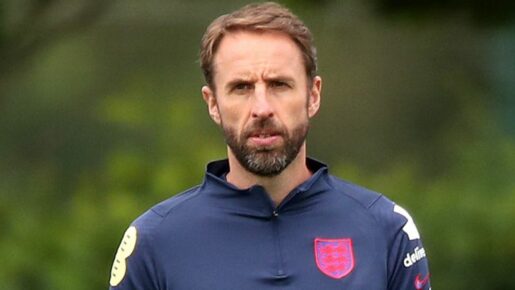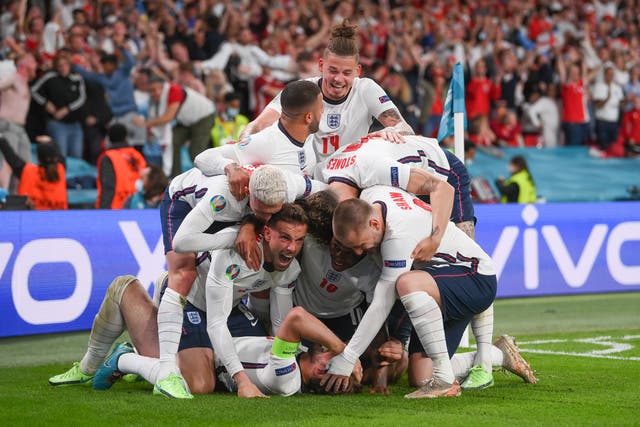Compare and contrast. Despair and hope. Pessimism and enthusiasm. It is England in a major tournament and it’s hard not to harken back to a past of bloated expectations and ultimate disappointment when one considers how far Gareth Southgate has brought a team that will battle Italy for the right to be called European champions at Wembley on Sunday.
For me, the reference point has to be the summer of 2016, a mere five years ago, after Iceland had put paid to England’s Euro 2016 hopes under Roy Hodgson. Contrasts hardly come any starker than that. It was another low point in English football history – one to rival Poland in 1973, Norway in 1993 and Croatia in 2007. Yet, five years on, England stand on the precipice of its greatest football achievement in well over 50 years.
Much of the credit for that turnaround must go to Southgate, of course. The 50-year-old ex-international already made huge strides in taking England to the World Cup semi finals in Russia three years ago, and he’s done really well to build on that foundation.
But there’s another key factor that’s perhaps just as fundamental to England’s rise: UEFA Champions League football.
Consider this: of the eight spots in the last four Champions League finals, five were filled by four Premier League clubs (Liverpool twice). No other country has more than one spot. And while it’s true that the top Premier League clubs field lots of foreign talent, it still means no less than 10 of Southgate’s 26-man squad have played in – started, actually – at least one Champions League final since 2018.

That’s a lot of big game experience against top quality opposition, just the kind of experience one would want in a squad with championship aspirations. It gets better too, when you add in Jadon Sancho and Jude Bellingham, two youngsters with a combined 31 Champions League appearances for Borussia Dortmund, you have a squad chock full of young, talented players with top level experience and mentality.
Compare and contrast? The extent of Champions League experience in England’s Euro 2016 squad: Joe Hart, Raheem Sterling and James Milner (semi finalists with Man City that year); Wayne Rooney and Gary Cahill (both then approaching over-the-hill status); Ryan Bertrand and Daniel Sturridge (bit part players at Chelsea four years earlier); Chris Smalling (last appearance in 2014) and Arsenal’s Jack Wilshire. Decent players, but none at the peak of their powers in 2016.
Line that up against the 2021 version of Ben Chilwell, John Stones, Kyle Walker, Kieran Trippier, Reece James, Mason Mount, Jordan Henderson, Phil Foden, Harry Kane, Raheem Sterling, Sancho and Bellingham – all regulars on teams currently or recently competing at the top level of the club game – and it’s no contest. Hodgson counted in vain on the creativity of the injury plagued Wilshire; Southgate can name an eleven for a crucial semi-final with the fully fit Grealish, Sancho and Foden sat on the bench.
To his credit, Southgate has honed the talent at his disposal into a well-synched unit, hard to break down and just about ruthless enough in attack. Their potential looks even brighter than that, even if that seems to be the formula for success in finals these days. It might be enough to see off Italy and crown England champions of Europe on Sunday.
Whatever happens, and I think England will win, this cast of young, talented, Champions League-honed English players makes this a really good time to be manager of England.
A good time for a good manager.









